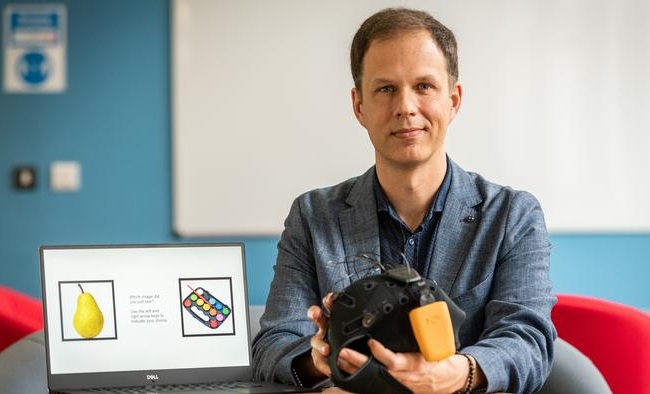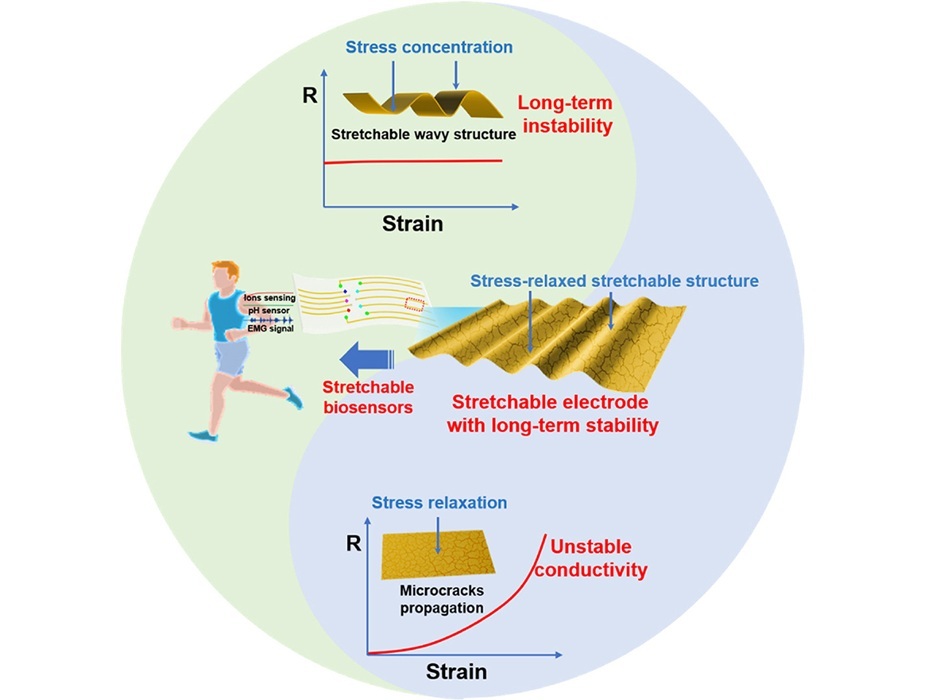AI Helps Hospitals Priorities Patients for Urgent Intensive Care and Ventilator Support
|
By HospiMedica International staff writers Posted on 23 Jan 2023 |

Researchers have developed a ‘digital twin’ that can help hospitals to prioritize patients for urgent intensive care and ventilator support. The new innovative system could potentially allow patients to be seen more quickly and receive the most effective treatment based on data from previous pneumonia sufferers.
The three-tiered system developed by a research team at Swansea University (Swansea, UK) uses deep learning methods to build patient-specific digital twins to identify and prioritize critical cases among patients with severe pneumonia. A digital twin is a virtual representation (or computer program) of a real-world physical system or product – it is updated from real-time data, and uses simulation, machine learning and reasoning to aid in decision-making.
“A human digital-twin is a digital replica of a human system or sub-system. This replica is a personalized digital representation, in terms of structure or functioning or both, of an individual or patient’s system,” said Professor Perumal Nithiarasu, Author and Associate Dean for Research, Innovation & Impact in the Faculty of Science & Engineering. “A human digital-twin is a digital replica of a human system or sub-system. This replica is a personalized digital representation, in terms of structure or functioning or both, of an individual or patient’s system. It can provide real-time feedback on how a patient’s health is likely to vary based on their current known condition using periodic input data from the patient’s vitals (such as heart rate, respiration rate).”
“The proposed digital-twin is built on pre-trained deep learning models using data from more than 1895 pneumonia patients. Overall, results indicate that the prediction for ITU and mechanical ventilation prioritization is excellent,” added Professor Nithiarasu. “The data used to train the models is for non-COVID-19 patients with pneumonia. However, this model may be employed in its current form to COVID-19 patients, but transfer learning with COVID-19 patient data will improve the predictions.”
“The COVID-19 pandemic has put an unprecedented stress on an already strained healthcare infrastructure. This situation has forced healthcare providers to prioritize patients in critical need to access ITUs and mechanical ventilation,” explained Dr. Neeraj Kavan Chakshu, Co-Author and IMPACT Fellow. “In the case of COVID-19 (and in other similar forms of influenza), more precise and dynamically evolving system may be necessary to address the sudden increase in severity and the need for mechanical ventilation.”
Related Links:
Swansea University
Latest AI News
Channels
Critical Care
view channel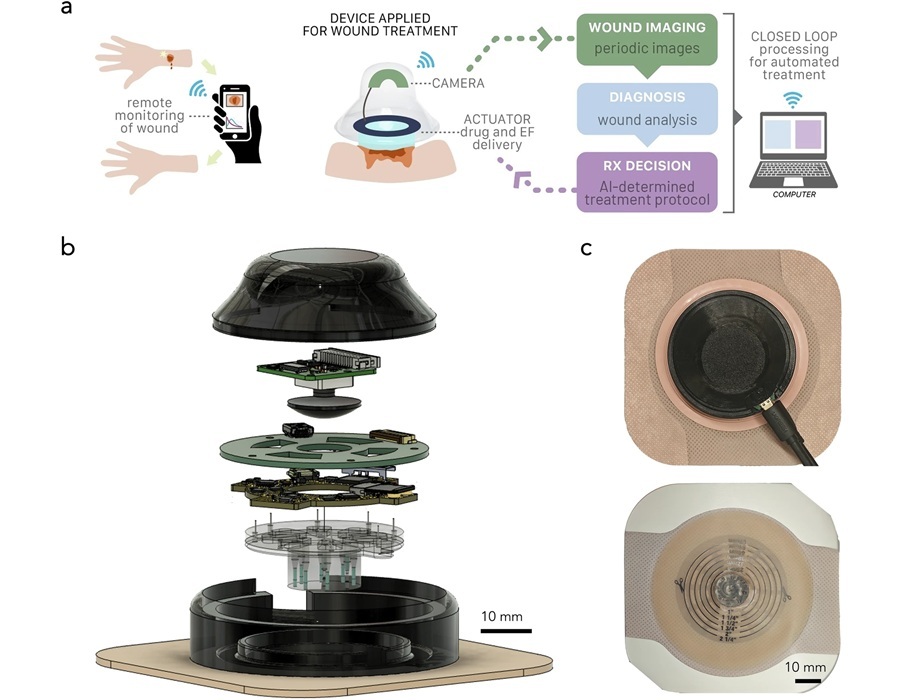
Wearable ‘Microscope in a Bandage’ Fastens Wound Healing
Wound healing is a complex biological process that moves through stages, including clotting, immune response, scabbing, and scarring. For many patients, especially those in remote areas or with limited... Read more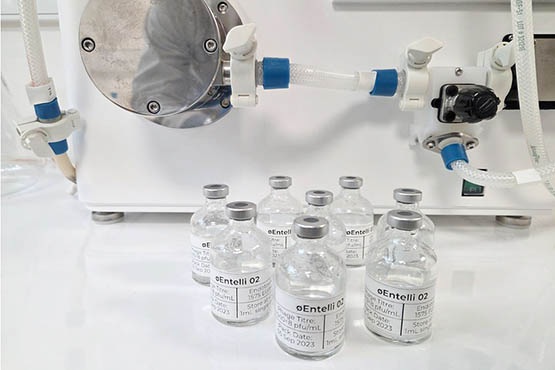
Virus Cocktail to Combat Superbugs Offers New Precision Medicine Approach for Hospitals Battling AMR
Antimicrobial resistance is one of the most pressing challenges in modern medicine, making once-treatable infections increasingly lethal. Enterobacter infections, for example, are difficult to treat and... Read moreSurgical Techniques
view channel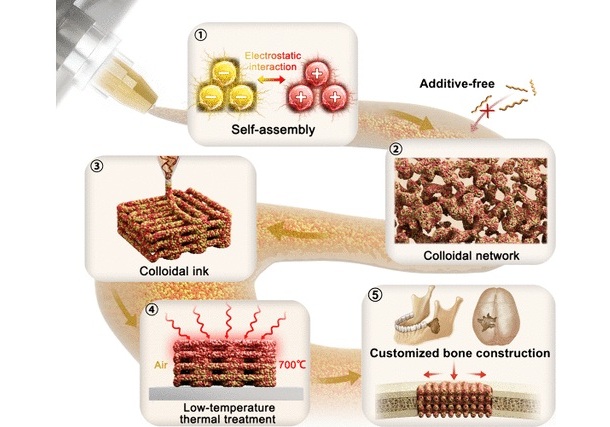
3D Printable Bio-Active Glass Could Serve as Bone Replacement Material
Glass may not seem like a natural choice for replacing bone, yet the two materials share surprising similarities in structure and strength. Bone and glass both bear weight more effectively than they withstand... Read more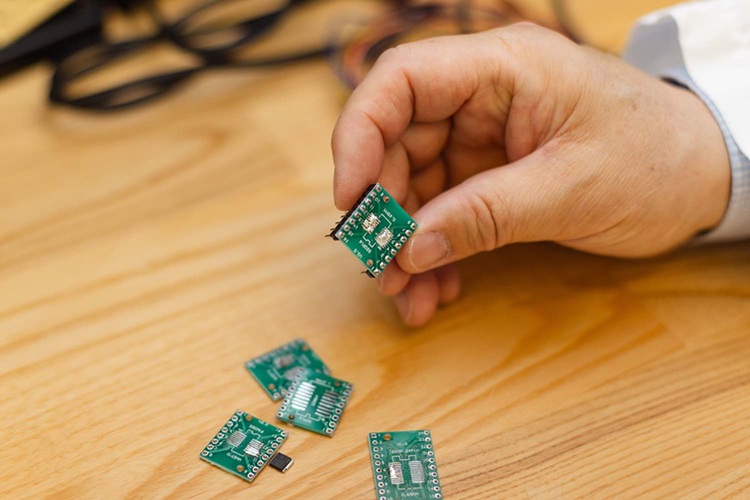
Micro Imaging Device Paired with Endoscope Spots Cancers at Earlier Stage
Digestive system cancers are among the most common cancers, with hundreds of thousands of new cases and deaths reported annually in the United States. Standard endoscopy, the main diagnostic method for... Read more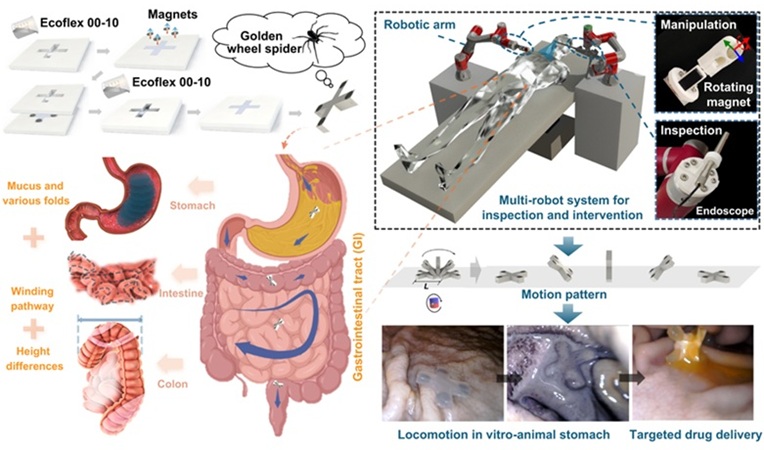
Spider-Inspired Magnetic Soft Robots to Perform Minimally Invasive GI Tract Procedures
The gastrointestinal (GI) tract is vital for digestion, nutrient absorption, and waste elimination, but it is also prone to cancers and other serious conditions. Standard endoscopy is widely used for diagnosis... Read morePatient Care
view channel
Revolutionary Automatic IV-Line Flushing Device to Enhance Infusion Care
More than 80% of in-hospital patients receive intravenous (IV) therapy. Every dose of IV medicine delivered in a small volume (<250 mL) infusion bag should be followed by subsequent flushing to ensure... Read more
VR Training Tool Combats Contamination of Portable Medical Equipment
Healthcare-associated infections (HAIs) impact one in every 31 patients, cause nearly 100,000 deaths each year, and cost USD 28.4 billion in direct medical expenses. Notably, up to 75% of these infections... Read more
Portable Biosensor Platform to Reduce Hospital-Acquired Infections
Approximately 4 million patients in the European Union acquire healthcare-associated infections (HAIs) or nosocomial infections each year, with around 37,000 deaths directly resulting from these infections,... Read moreFirst-Of-Its-Kind Portable Germicidal Light Technology Disinfects High-Touch Clinical Surfaces in Seconds
Reducing healthcare-acquired infections (HAIs) remains a pressing issue within global healthcare systems. In the United States alone, 1.7 million patients contract HAIs annually, leading to approximately... Read moreHealth IT
view channel
Printable Molecule-Selective Nanoparticles Enable Mass Production of Wearable Biosensors
The future of medicine is likely to focus on the personalization of healthcare—understanding exactly what an individual requires and delivering the appropriate combination of nutrients, metabolites, and... Read moreBusiness
view channel
Philips and Masimo Partner to Advance Patient Monitoring Measurement Technologies
Royal Philips (Amsterdam, Netherlands) and Masimo (Irvine, California, USA) have renewed their multi-year strategic collaboration, combining Philips’ expertise in patient monitoring with Masimo’s noninvasive... Read more
B. Braun Acquires Digital Microsurgery Company True Digital Surgery
The high-end microsurgery market in neurosurgery, spine, and ENT is undergoing a significant transformation. Traditional analog microscopes are giving way to digital exoscopes, which provide improved visualization,... Read more
CMEF 2025 to Promote Holistic and High-Quality Development of Medical and Health Industry
The 92nd China International Medical Equipment Fair (CMEF 2025) Autumn Exhibition is scheduled to be held from September 26 to 29 at the China Import and Export Fair Complex (Canton Fair Complex) in Guangzhou.... Read more











